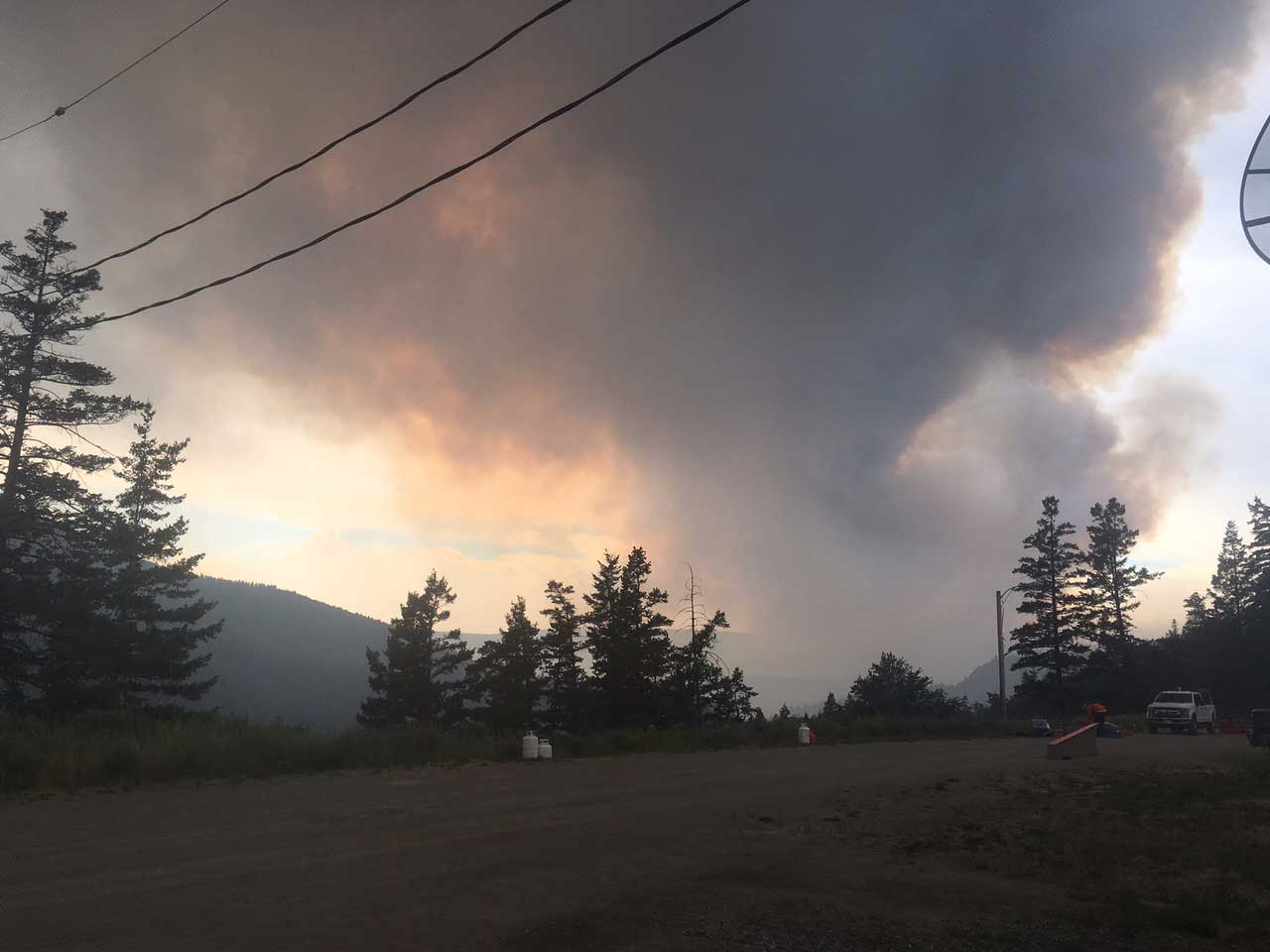WILLIAMS LAKE, BC—When Victoria Niven, who hails from Spring Bay, touched down for her first ever out-of-province shift as a member of the Ministry of Natural Resources and Forestry (MNRF) forest fire firefighting crew, the scene at Williams Lake, BC was an eerie one.
The 22-year-old told The Expositor in a Monday interview that by the time her crew landed in Williams Lake from Timmins, the city of 40,000 had been evacuated. All that remained was an empty community filled with so much smoke from the four forest fires that raged around it one could hardly see.
Ms. Niven just graduated with a degree in law from Laurentian University, but for the past two summers has been pursuing her passion for fighting fires, taking the mandatory course last spring and getting her national accreditation, meaning she can join travelling crews outside of Ontario, like the one she finds herself with now, in BC.
Stationed at an MNRF base in Timmins for the past two summers, Ms. Niven tells The Expositor there were so many fires locally, in the Gogama, Timmins and Kirkland Lake areas, last year, her work was close to home base, but with the damper and cooler weather so far this summer, things have quieted down enough that crews could be sent to help in BC.

photos by Victoria Niven
“The only people here (in Williams Lake) are RCMP, structural firefighters, crews from Australia, Nova Scotia, Ontario and, basically, from right across Canada,” Ms. Niven explains.
Two weeks ago, the community was evacuated and Ms. Niven says the difference between then and now is a marked improvement. “Right now it’s looking a lot better, but when we first got here you couldn’t even see the town,” she says.
The fires are devouring over 10,000 hectares of land in the area.
Ms. Niven’s crew is responsible for structural protection. She explained that her crew will assess areas around Williams Lake that are under threat and set up sprinkler systems and porta-tanks that are filled with 1,500 gallons of water that the fire engines then use to pump water.
“In Ontario there’s always a body of water nearby that we can draw from, but not here,” she says; hence the need for porta-tanks. The 1,500 gallons of water lasts about a half hours before being refilled.
Firefighters are allowed to work 19 days, 14 of which can be spent directly fighting fires.
It’s physically exhausting work, with workdays of 7 am to 11 pm during the fires’ worst period, but that’s part of what draws Ms. Niven to the job—her love of being challenged, both physically and mentally. Now that the fires have been knocked down, the shifts are back to 12 hours.
“This experience is really rewarding,” Ms. Niven shares, “helping people out.”
The firefighter said when she and her crew landed, they had met people who had just been evacuated from their homes, struggling with emotion, but thanking them for their help.
Since she’s been there for over two weeks, Ms. Niven flies back to Timmins on Sunday, but after two days’ rest, there is a chance she could be sent back again if the fires are not tamed in Williams Lake, or until the next raging forest fire.
The firefighter says that fighting fires is a lot different in Timmins than in BC. In Ontario’s Northeast, when Ms. Niven’s office hears reports of a fire, a helicopter will be sent to spot the blaze then crews will act accordingly.
This experience has meant being part of a thousand-person camp filled with people who all have a deep devotion to fighting fires.
There’s talk that Williams Lake could see its residents welcomed back within a week.
“They’ve actually already opened up a Tim Hortons a few days ago,” she laughs, noting that the people running it were rather unusual, though. “They were RCMP, as no civilians are allowed into the town.”
Tanks could also be seen barreling through Williams Lake, adding to the ominous feel of the deserted town, as the armed forces was also called in to assist with the blazes, especially with policing as looting was becoming commonplace when some saw the fire as an opportunity for crime.
In January, Ms. Niven will begin a four-month pre-service fire program at the Fire and Emergency Services Training Institute in Toronto and then hopes to become a structural firefighter with a big fire department in southern Ontario. As for a career in law, well that can always wait. “It’s good to have a university degree,” Ms. Niven says of her well-rounded education.





